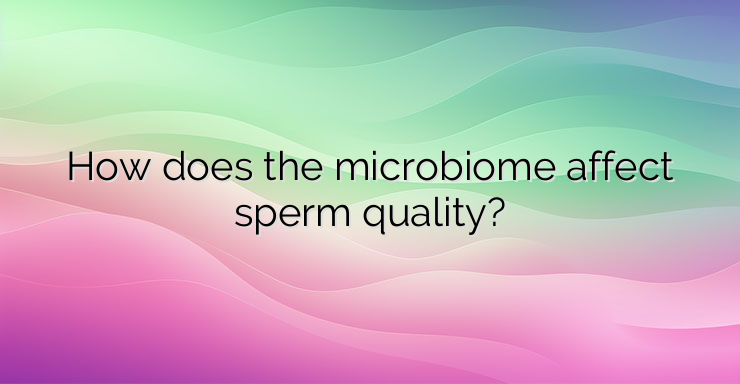Sperm have their own microbiome, which may give us a better understanding of male infertility. The microbiome is home to millions of different microorganisms, whose diversity contributes to overall health. A new scientific study looks at how this diversity in the sperm microbiome affects certain sperm parameters. Cases of azoospermia (ejaculation in which no sperm are expelled) and hylogozoospermia (low sperm count) have also been considered. Sperm pH levels, as well as their volume, concentration and motility, were investigated. The analysis of data from 73 volunteers shows that certain microorganisms in the sperm microbiome have an influence on various sperm parameters. For example, normal levels in all parameters are associated with a high presence of the bacterium S. hominis and low levels of P. coxii. Normal sperm motility was associated with reduced levels of L. iners, and sperm concentration was associated with levels of three microbes � P. stutzeri, P. phenazinium and P. fluoresens. L. iners proved to be a key microbe for the values ??of most parameters in spermatozoa. Its elevated levels are associated with abnormal parameters. This microorganism can also be found in the vaginal microbiome. A previous scientific study found that L. iners can also have a beneficial effect on sperm and protect them. In addition to the sperm microbiome, the gut microbiome is also related to male fertility. A scientific study presented in the journal Front Reprod Health by a team at the University of Texas, USA, examines the relationship between the gut microbiome and reproductive function. An imbalance in the gut microbiome can lead to oxidative stress, which affects all systems in the body, including the reproductive system � stress can lead to abnormal sperm parameters. Oxidative stress also leads to inflammation and toxin production, which can contribute to further imbalances in the microbiome. Another result showed that the intake of processed foods was associated with the risk of asthenospermia (reduced sperm motility). Alteration of the sperm microbiome is linked to the gut microbiome, but can also be altered by sexual contact. Microorganisms from the vaginal microbiome can transfer to the urethra and vice versa, which has implications for reproductive function. References: Osadchiy, V. Semen microbiota are dramatically altered in men with abnormal sperm parameters. https://www.nature.com/articles/s41598-024-51686-4 Farahani, L. The semen microbiome and its impact on sperm function and male fertility: A systematic review and meta-analysis. https://pubmed.ncbi.nlm.nih.gov/32794312/ Magil, R. Male infertility and the human microbiome. https://www.ncbi.nlm.nih.gov/pmc/articles/PMC10289028/


Leave a Reply